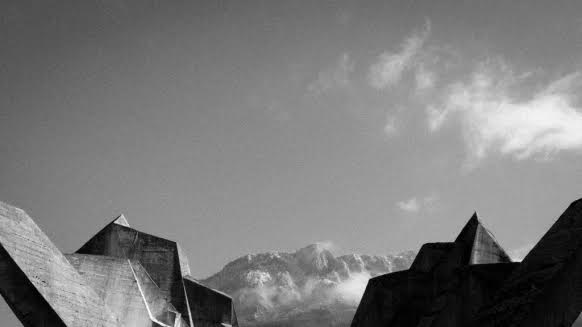Best Movies of 2021
I will be putting up other people's lists as I hastily try to compile one of my own to send to IndieWire. Due to missing the NYFF and every other in-person festival this year and not spending any time in NYC or Paris either, I have not yet seen a lot of the festival favorites that will be popping up on critics' lists. Maybe I'll have seen and loved some few others even noticed, though.
On one site these are the only personal lists available so far:
JONATHAN ROSENBAUM
First Cow - Kelly Reichardt
Her Socialist Smile - John Gianvito
Tiong Bahru Social Club - Tan Bee Thiam
Martin und Hans - Mark Rappaport
John Farrow Hollywood's Man in the Shadows - Claude Gonzalez & Frans Vanderburg
While We Are Here - Clarissa Campolina and Luiz Pretti
Letters from the Ends of the World - a dozen of the first graduates of Béla Tarr’s FilmFactory
Uncut Gems - Ben Safdie and Joshua Safdie
Cry Macho - Clint Eastwood
JOHN CRONK:
Annette- Leos Carax
Benedetta -Paul Verhoeven
The Hole - Michelangelo Frammartino
The Card Counter - Paul Schrader
Cry Macho - Clint Eastwood
Drive My Car - Ryűsuke Hamaguchi
France - Bruno Dumont
In Front of Your Face - Hong Sang-soo
Memoria - Apichatpong Weerasethakul
What Do We See When We Look at the Sky? - Aleksandre Koberidze
JOHN WATERS
(For his annotated version go to ArtForum)
1
ANNETTE (Leos Carax)
The best movie of the year is an insane, over-the-top, and thankfully self-indulgent Sparks Brothers musical about an angry macho performance artist, his opera-diva girlfriend, and their daughter, who is somehow born a puppet. See it by yourself so no one you know can possibly ruin this nutcase masterpiece. Oh yeah—it’s really long.
2
SUMMER OF SOUL (...OR, WHEN THE REVOLUTION COULD NOT BE TELEVISED) (Ahmir “Questlove” Thompson)
Beautifully edited from forgotten footage left behind in a lab, the so-called Black Woodstock concert film, originally shot in 1969 in Harlem, rises to the top of 2021 with a vengeance. The camera practically goes down Clara Ward’s throat to show us just where her great gospel voice actually begins. Wait till you see Nina Simone—never angrier! She’ll kick your ass and so will this movie.
Ahmir “Questlove” Thompson, Summer of Soul (…Or, When the Revolution Could Not Be Televised), 2021, 2K video, color, sound, 117 minutes. Nina Simone.
Ahmir “Questlove” Thompson, Summer of Soul (…Or, When the Revolution Could Not Be Televised), 2021, 2K video, color, sound, 117 minutes. Nina Simone.
3
VORTEX (Gaspar Noé)
The director’s most humane and unironic yet scarily claustrophobic feel-bad drama about death is filmed in split-screen Duo-Vision, so be prepared for twice the disturbing power of his other cinematic shockers.
4
FRANCE (Bruno Dumont)
This psychological study of a fictitious popular female newscaster may start out conventionally, but the assured director’s long pauses and cruel plot twists quickly turn a quasi attack on the media and its ravenous consumers into a searing critique of both the tedium and the emotional risk of living in the public eye.
5
THE MOST BEAUTIFUL BOY IN THE WORLD (Kristina Lindström, Kristian Petri)
Imagine, today, openly gay director Luchino Visconti being allowed inside a high school to parade auditioning half-naked teenage boys in front of him for his film Death in Venice. This harrowing documentary explores the perils of teen stardom for the kid who got the part and went from being the most beautiful to the most fucked up.
6
MANDIBLES (Quentin Dupieux)
The stupidest art film of the year, directed by a Gallic auteur who specializes in one-joke dumbbell comedies, about a giant fly and two French stooges, is also one of the funniest and most charming.
7
RED ROCKET (Sean Baker)
Shocking? Refreshing? The male gaze comes out of today’s PC closet in an incredibly well-cast tale of a washed-up hetero male porn star who goes back to his meth-head ex-wife and mother-in-law in Texas to start a new dysfunctional life. Finally, fuckin’, fightin’, and frontal nudity are back on the art-house screen, where they belong.
8
THE TRAGEDY OF MACBETH (Joel Coen)
If Ingmar Bergman came back from beyond the grave today to direct Shakespeare on film, this is what it would look like. Kathryn Hunter as all three of the witches has to be seen to be believed.
9
SAINT-NARCISSE (Bruce LaBruce)
The Canadian punk queer director’s most successfully realized movie, elegantly shot and seamlessly put together. Think Vali the Witch of Positano meets twin Joe Dallesandros. Catholic, sexy, and oh so deviantly devout.
10
THE ONANIA CLUB (Tom Six)
OK, I’m really going out on a limb here, replacing Pedro Almodóvar’s exquisite Parallel Mothers, a film everybody should love, with this loathsome unreleased feature everybody will probably hate. The Human Centipede director tops himself with a story of rich Los Angeles women who gather together to masturbate while watching news footage of the world’s misery. Often wrongheaded but sometimes laugh-out-loud funny, it has been rejected by film distributors worldwide. All I can say is that the movie sure as hell delivers. You will probably never be able to see it. Maybe that’s a good thing . . .




 Reply With Quote
Reply With Quote

Bookmarks